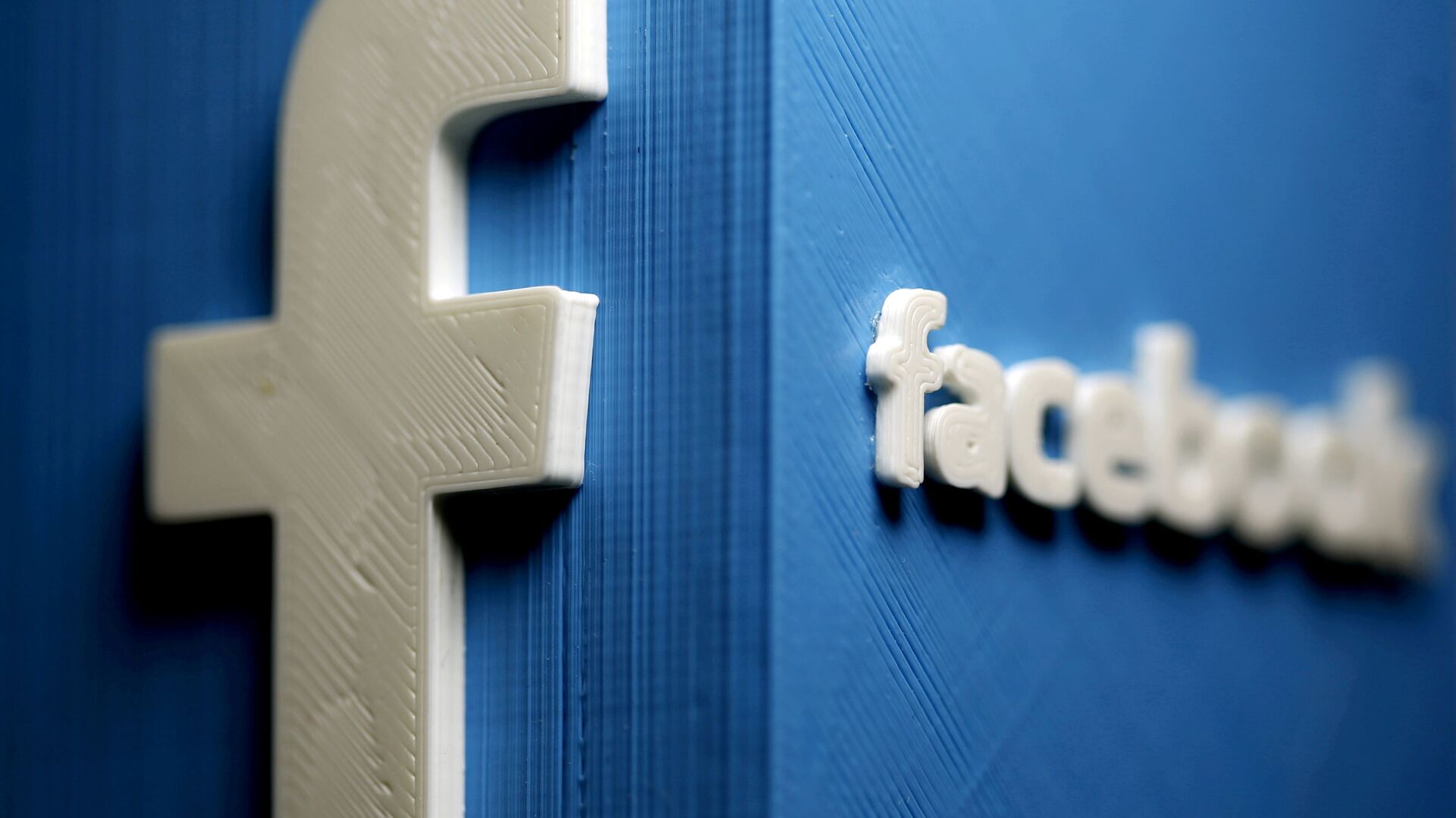https://sputnikglobe.com/20211020/facebooks-reported-decision-to-rebrand-seems-opportunistic-prof-says-1090078071.html
Facebook's Reported Decision to Rebrand Seems 'Opportunistic', Prof Says
Facebook's Reported Decision to Rebrand Seems 'Opportunistic', Prof Says
Sputnik International
MOSCOW (Sputnik) - Facebook's rumored plan to rebrand itself is "opportunistic" and unlikely to help the company restore its reputation, tarnished by reports... 20.10.2021, Sputnik International
2021-10-20T17:04+0000
2021-10-20T17:04+0000
2022-11-03T18:23+0000
science & tech
facebook
https://cdn1.img.sputnikglobe.com/img/07e5/03/12/1082385699_0:208:2900:1839_1920x0_80_0_0_d0ed7289cf23aff18e5cb61f6afc12d3.jpg
"The timing of the Facebook rebranding is opportunistic. It comes at a time when Facebook has faced years of public scrutiny and backlash for a variety of bad behaviors such as platforming fake news, firing leading experts in tech ethics, and prioritizing advertising dollars over its users ... Repositioning and rebranding are not enough", Drenten, who is also an acting chair of the Marketing Department at Quinlan, said.Earlier on Wednesday, the US tech blog The Verge reported, citing a source, that Facebook intends to change its company name next week to reflect its plans to build a metaverse — a shared virtual environment that makes online interactions much more like communicating in person. A Facebook spokesperson refused to comment on the rumor, the blog said.In a sign that it is serious about the metaverse, Facebook announced earlier this week a plan to create 10,000 jobs in the European Union over the next five years as part of its metaverse project.The idea of a metaverse is becoming increasingly popular with tech companies, although people usually associate it with "gaming brands like Fortnite and Roblox," Drenten said. Facebook, however, may be looking to build a metaverse that is more like the Second Life website, popular in early 2000s, where people can set up a profile and carry on a second, virtual life, the expert said.Facebook has been at the heart of several congressional hearings on fake news, hate speech, and privacy in recent years.A series of reports by the Wall Street Journal suggested that the company was aware of multiple issues but not doing enough to protect users. The WSJ based its reports in part on internal documents provided by Frances Haugen, who worked for Facebook. On 5 October, Haugen testified before a committee in the Congress, stressing that Facebook leadership knew how to make the platform safer but valued profits over user safety.Facebook CEO Marc Zuckerberg said shortly afterward that the testimony had given a "false picture" of the company.Facebook is not the first tech company to change its company name as its ambitions expand. In 2015, Google reorganized entirely under a holding company called Alphabet.
https://sputnikglobe.com/20211020/facebook-plans-to-change-its-name-next-week---reports-1090056694.html
Sputnik International
feedback@sputniknews.com
+74956456601
MIA „Rosiya Segodnya“
2021
Sputnik International
feedback@sputniknews.com
+74956456601
MIA „Rosiya Segodnya“
News
en_EN
Sputnik International
feedback@sputniknews.com
+74956456601
MIA „Rosiya Segodnya“
Sputnik International
feedback@sputniknews.com
+74956456601
MIA „Rosiya Segodnya“
science & tech, facebook
Facebook's Reported Decision to Rebrand Seems 'Opportunistic', Prof Says
17:04 GMT 20.10.2021 (Updated: 18:23 GMT 03.11.2022) MOSCOW (Sputnik) - Facebook's rumored plan to rebrand itself is "opportunistic" and unlikely to help the company restore its reputation, tarnished by reports of security, fake news and hate speech issues, Dr Jenna Drenten, an associate professor of Marketing at Quinlan School of Business Loyola University Chicago, told Sputnik on Wednesday.
"The timing of the Facebook rebranding is opportunistic. It comes at a time when Facebook has faced years of public scrutiny and backlash for a variety of bad behaviors such as platforming fake news, firing leading experts in tech ethics, and prioritizing advertising dollars over its users ... Repositioning and rebranding are not enough", Drenten, who is also an acting chair of the Marketing Department at Quinlan, said.
Earlier on Wednesday, the US tech blog The Verge reported, citing a source, that Facebook intends to change its company name next week to reflect its plans to build a metaverse — a shared virtual environment that makes online interactions much more like communicating in person. A Facebook spokesperson refused to comment on the rumor, the blog said.
In a sign that it is serious about the metaverse, Facebook announced earlier this week a plan to create 10,000 jobs in the European Union over the next five years as part of its metaverse project.

20 October 2021, 02:49 GMT
The idea of a metaverse is becoming increasingly popular with tech companies, although people usually associate it with "gaming brands like Fortnite and Roblox," Drenten said. Facebook, however, may be looking to build a metaverse that is more like the Second Life website, popular in early 2000s, where people can set up a profile and carry on a second, virtual life, the expert said.
"By saying the rebrand is driven by the metaverse, Facebook strategically gains news coverage and shifts the narrative from 'Facebook is evil' to 'Facebook is innovative' — but the company cannot avoid the need to embrace new policies and practices to actively address its tarnished reputation and the harm done", Drenten said.
Facebook has been at the heart of several congressional hearings on fake news, hate speech, and privacy in recent years.
A series of reports by the Wall Street Journal suggested that the company was aware of multiple issues but not doing enough to protect users. The WSJ based its reports in part on internal documents provided by Frances Haugen, who worked for Facebook. On 5 October, Haugen testified before a committee in the Congress, stressing that Facebook leadership knew how to make the platform safer but valued profits over user safety.
Facebook CEO Marc Zuckerberg said shortly afterward that the testimony had given a "false picture" of the company.
Facebook is not the first tech company to change its company name as its ambitions expand. In 2015, Google reorganized entirely under a holding company called Alphabet.




